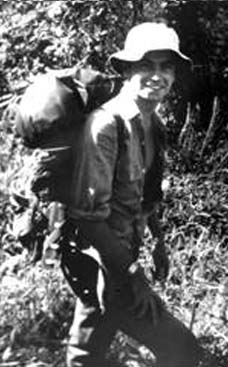
China's growing footprint is in large part attributable to its emphasis on developing economic, political, and diplomatic relations with its regional neighbors, while simultaneously drawing them into Beijing's sphere of influence through skillful public diplomacy campaigns and a policy of nonintervention. In order to mitigate negative perceptions about the United States, the State Department has been attempting to spread good will. It hopes to resuscitate America's waning reputation by focusing on developing messages that make administration policies seem attractive to international audiences. The biggest and most obvious problem with this approach is that it does nothing to address the root causes of international grievances against the United States. Like a used car salesman selling a car without wheels, the US strategy is attempting to sell policies without traction. This process actively undermines international opinion of the United States and is actively undermining American influence. In other words, while the United States is pushing a failing public relations campaign, China is using effective public diplomacy to chart a forward looking path.
Diplomatic lessons from China
Diplomatic lessons from China
By Price Floyd and Nirav Patel | October 12, 2007
PRESIDENT BUSH'S "go it alone" foreign policy continues to engender ill will toward the United States.
Meanwhile, Beijing has taken this opportunity to develop a masterful public diplomacy strategy that capitalizes on America's public diplomacy shortcomings. While Washington anoints ice skater Michelle Kwan and baseball legend Cal Ripken as public diplomacy emissaries, China is actively signing free trade agreements and extending development assistance to dozens of countries around the world.
Admittedly, China's "sacrifice morals for money" foreign policy makes it easier to court friends, including gross violators of human rights, but it should also serve as a launching point for US public diplomacy strategies meant to highlight both the inadequacies and dangers of Beijing's ways.
China's public diplomacy is wrought with ethical problems but its results are tangible from Africa through the Middle East and from South America across the Pacific to Southeast Asia. National economies and political leaders are developing closer relationships with Beijing.
China's growing footprint is in large part attributable to its emphasis on developing economic, political, and diplomatic relations with its regional neighbors, while simultaneously drawing them into Beijing's sphere of influence through skillful public diplomacy campaigns and a policy of nonintervention.
In order to mitigate negative perceptions about the United States, the State Department has been attempting to spread good will. It hopes to resuscitate America's waning reputation by focusing on developing messages that make administration policies seem attractive to international audiences.
The biggest and most obvious problem with this approach is that it does nothing to address the root causes of international grievances against the United States. Like a used car salesman selling a car without wheels, the US strategy is attempting to sell policies without traction. This process actively undermines international opinion of the United States and is actively undermining American influence. In other words, while the United States is pushing a failing public relations campaign, China is using effective public diplomacy to chart a forward looking path.
Public diplomacy requires patience and resolve. America's current approach seems overly focused on quick fixes, of which the president's recent decision to invite members of the Association of Southeast Asian Nations to his ranch in Crawford, Texas, for a meeting is but the latest example.
The Crawford meeting is meant to mend relations with ASEAN leaders who view America's commitment to the region with great skepticism. Inviting them for a photo-op, however, cannot address the root causes of growing divergences in US-ASEAN relations. This is particularly true because of China's "action first, photographs second," foreign policy that stamps out free trade agreements and diplomatic communiqués as the basis for their public diplomacy.
America has a lot to learn from Beijing's public diplomacy shop. Most presciently, China seems to have learned the major lesson of public diplomacy: product trumps packaging every time. China is not only buying friends but is actively courting them along both diplomatic and political lines. Moreover, China is displaying an advanced knowledge in public diplomacy that is challenging America's soft power throughout the world.
Beijing's almost scientific approach to public diplomacy can be seen in the opening of embassies and consulates throughout Africa, South America, and Southeast Asia. Unlike the US foreign service officer, China's service officers are assigned to particular countries for long tours of duty to develop both cultural and language expertise and establish firm relations between Beijing and its allies.
The State Department strategy must start by first reflecting on the failures of this administration's policies.
The United States needs to close the Guantanamo detention center; it needs to actively participate in global climate change efforts; and most importantly it needs to recalibrate its disdain for multilateral diplomacy. Once it has substance it can address its public diplomacy shortcomings and devise a proactive and effective communication's strategy capable of charting a responsible and ethical "way forward."
Without a change in Washington's product line America will continue to fall behind the 21st-century race to establish an enduring global footprint. The Chinese public diplomacy strategy offers many lessons for US policy makers and most importantly it illustrates the growing allure of Beijing's foreign policy.
Price Floyd served at the State Department for 17 years, most recently as director of media affairs. He is now the director of external relations with the Center for a New American Security. Nirav Patel is a research associate specializing in Asian affairs.













